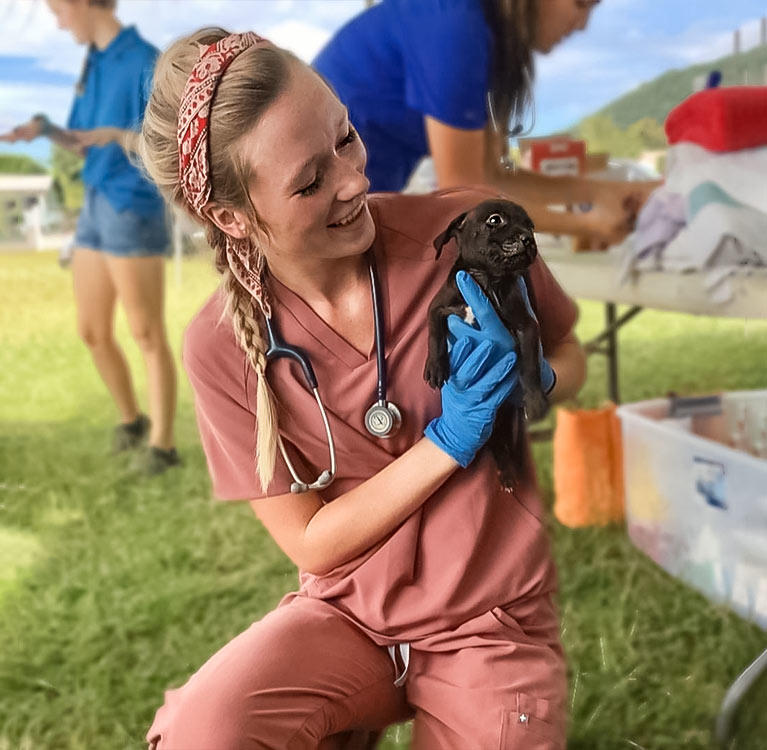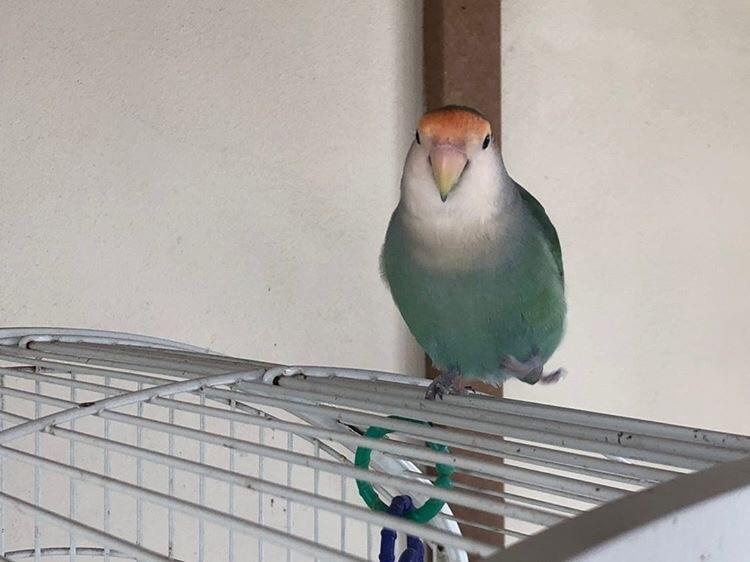Veterinarians can positively impact the lives of humans and animals alike. Their unique skills can improve an animal’s quality of life, aid with nutrition, provide emergency care, and more. Veterinarians use their knowledge, skills, and compassion to advocate for the well-being of small and large animals.
Before students can become veterinarians, they must complete a Doctor of Veterinary Medicine (DVM) program. Specific classes offered in DVM programs vary based on the school and program. However, each program shares common core classes to train well-rounded veterinarians.
These classes ensure each student has the knowledge and skills required to practice veterinary medicine.
What Classes Do You Take in Vet School?
The specific name of each class may vary depending on the program. The names listed below are common core topics shared between each program.
Animal Anatomy
Animal anatomy classes teach students the gross anatomy of large and small animals. These classes are supplemented with cadaver labs to help students visualize how each part of the body is connected. This allows students to see healthy organs as well as anomalies firsthand.
Animal anatomy classes at Ross University School of Veterinary Medicine (Ross Vet) cover a variety of species. Students will dissect embalmed canine cadavers during labs and examine prosections of felines, equine, avians, and more.
Animal Physiology
Animal physiology classes build upon anatomy classes by explaining the structure and function of the animal. It explains how organ systems work together and helps students discover what goes wrong when an animal becomes ill. It also explains changes within an animal’s body during pregnancy as well as what is normal in healthy newborn animals.
Pathology
Pathology classes explore the disease process across various organ systems for different animal species. They explore the cause of diseases, how they develop, how they impact organ systems, and the consequences of each disease. Students in pathology classes may examine gross and microscopic changes in animal tissues and organs to better diagnose diseases.
Pathology classes prepare students to identify and understand diseases to determine appropriate treatment and prevention strategies.
Parasitology
Parasitology classes train students to identify common host species and their impact on animal health. Ross Vet’s Parasitology class covers the life cycles, clinical signs, and pathogenesis of helminthic, arthropod, and protozoan parasites. Lectures are supplemented by laboratories, so students can practice identifying parasites based on the lesions produced.
Pharmacology
Pharmacology classes introduce students to common pharmaceuticals and drugs used in veterinary medicine. It covers the composition of various drugs, their effects on an animal’s body, and how they interact with other medications. Students also learn to calculate accurate dosages to prescribe and dispense to patients.
Immunology
Immunology classes cover the response of an animal’s body to the detection of foreign agents. It covers innate immunity, adaptive immunity, and immunodeficiency in a wide range of species. This prepares students to better identify, test for, diagnose, and manage conditions such as allergies and autoimmune diseases.
Immunology classes cover the basics of vaccinations and how they bolster an animal’s immune system to better fight off infections.
Diagnostic Imaging
Diagnostic imaging classes teach students to take, analyze, and interpret x-rays as well as sonographs. Students are trained in ways to protect themselves and patients from radiation as well as safely operate diagnostic imaging equipment. Students in these classes may also learn to troubleshoot common problems with imaging technology to better serve their patients.
Clinical Skills
Clinical Skills classes reinforce a student’s medical knowledge through critical thinking exercises and hands-on simulations. Students are challenged to create reasonable hypotheses based on the symptoms provided, test their hypothesis, diagnose, and treat a patient. These classes train students to think and react like a veterinarian.
Clinical skills classes help students build confidence in their judgment, practical skills, and the medical profession as a whole. These classes better synthesize a student’s knowledge with practical applications and realistic scenarios.
Animal Medicine
Animal medicine classes can be split into small animal medicine and large animal medicine. While each class focuses on different species, both train students to understand common diseases in various body systems. These classes draw upon previous knowledge learned during pre-clinical studies.
Anesthesiology and Animal Surgery
Anesthesiology classes teach students to evaluate and prepare patients for anesthesia. They cover ways anesthesia can be administered as well as ways to monitor patients once they are under. They explain the risks associated with anesthesia, how anesthesia interacts with other medications, and medication for pain management after surgery.
Animal surgery classes may be split into small animal surgery and large animal surgery. Both classes train students to prepare themselves and the patient for surgery. They also cover common surgical techniques, procedures, and the importance of making reasonable decisions in operating rooms.
Next Steps
While the academic path to becoming a veterinarian may seem rigorous, it trains students to provide quality care. Each DVM program supplements the core classes above with electives and career pathways. This better prepares students for their desired career within veterinary medicine.
Ready to begin training for careers in veterinary medicine? Call us at +1 754.707.5547 or submit this form for more information.






